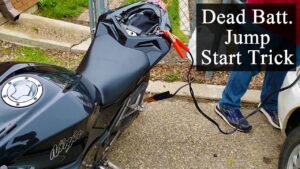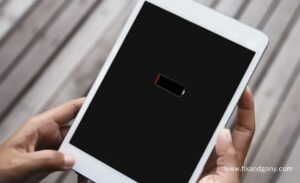Curious if your car’s alternator charges the battery while idling? The short answer is yes, it does! When your vehicle is running, the alternator plays a vital role in keeping the battery charged and supplying power to all the electrical components. But why does this matter? Well, a healthy battery ensures that your car starts smoothly, keeps the lights on, and powers all the fancy gadgets. Understanding how the alternator charges the battery while idling can help you maintain a reliable and efficient electrical system. So, let’s dive in and unravel the workings behind this essential automotive process.
Does the Alternator Charge the Battery While Idling?
When it comes to the functioning of a vehicle’s electrical system, the alternator plays a crucial role. It is responsible for generating electricity and charging the battery, which in turn powers various components like the lights, radio, and other electrical systems. While most people understand that the alternator charges the battery while the engine is running, there is often confusion about whether it also charges the battery when the engine is idling. In this article, we will delve into this topic and provide a comprehensive answer to the question: Does the alternator charge the battery while idling?
The Role of the Alternator
Before we delve into the specifics, let’s first understand the role of the alternator in an automobile. The alternator is an integral part of the vehicle’s charging system and functions by converting mechanical energy from the engine into electrical energy. It consists of a rotor, stator, diode rectifier, and voltage regulator, all working together to generate the necessary electricity.
The primary function of the alternator is to supply electrical power to the vehicle’s electrical systems while simultaneously charging the battery. Without the alternator, the battery alone would not be sufficient to power all the electrical components in a vehicle.
Charging the Battery While Idling
Now, let’s address the key question: Does the alternator charge the battery while idling? The answer is yes, the alternator does charge the battery while the engine is idling, but the charging rate may not be as efficient as when the engine is running at higher RPMs.
Factors Affecting Charging Rate
The charging rate of the alternator while idling can vary based on several factors:
- Engine RPM: The charging rate of the alternator is directly proportional to the engine RPM. At idle, the engine operates at a lower RPM, resulting in a slower charging rate compared to when the engine is running at higher RPMs.
- Electrical Load: The electrical load in the vehicle also affects the charging rate. When idling, if numerous electrical components like headlights, air conditioning, and audio systems are simultaneously in use, the alternator has to work harder to meet the increased demand, which may impact the charging rate.
- Battery Condition: The condition of the battery itself plays a role in how efficiently it can be charged. If the battery is old, weak, or has a low charge, it may not receive optimal charging even while idling.
Optimal Charging Conditions
To ensure the alternator charges the battery efficiently while idling, it is best to follow these conditions:
- Reduce Electrical Load: Minimize the usage of unnecessary electrical components while idling to allow the alternator to focus on charging the battery effectively.
- Avoid Long Idling Periods: Extended idling can put excessive strain on the alternator and the battery. If the vehicle needs to be stationary for an extended duration, it is advisable to turn off the engine to avoid unnecessary battery drain.
- Maintain the Battery: Regularly check and maintain the battery’s condition to ensure it can accept the charge efficiently. Clean the battery terminals and check the electrolyte levels if applicable.
Consequences of Insufficient Charging
If the alternator is not charging the battery efficiently while idling, it can lead to a range of issues:
- Dimming Lights: Insufficient charging may cause the lights to dim or flicker, indicating a drop in electrical power.
- Hard Starting: A weakly charged battery might struggle to start the engine, resulting in longer cranking times or even a failed start.
- Battery Drain: If the alternator is unable to keep up with the electrical demand while idling, the battery may continue to discharge, eventually leading to a dead battery.
- Poor Electrical Performance: Various electrical systems within the vehicle, such as the audio system or power windows, might experience performance issues due to inadequate power supply.
In conclusion, the alternator does charge the battery while idling, but the charging rate may be slower compared to when the engine is running at higher RPMs. The charging rate depends on factors such as engine RPM, electrical load, and battery condition. To ensure optimal charging while idling, it is important to minimize the electrical load, avoid extended idling periods, and maintain the battery’s condition. By following these guidelines, you can keep your vehicle’s electrical system in good health and avoid potential issues caused by insufficient charging while idling.
Frequently Asked Questions
Does the alternator charge the battery while idling?
Yes, the alternator does charge the battery while the engine is idling. The alternator is responsible for generating electricity to power the vehicle’s electrical systems and to charge the battery. Whether the engine is running at idle or at higher RPMs, the alternator continues to produce the necessary electrical current to keep the battery charged.
How does the alternator charge the battery while idling?
The alternator consists of a rotor, stator, and diode assembly. As the engine runs, the spinning motion of the rotor creates a changing magnetic field, which induces an electrical current in the stator windings. This current is then converted into DC (direct current) by the diode assembly and sent to the battery for recharging.
Is the charging rate of the alternator affected when the engine is idling?
Yes, the charging rate of the alternator can be affected when the engine is idling. At idle speed, the alternator may not produce the same level of electrical output as it would at higher RPMs. This is because the rotational speed of the engine directly affects the speed at which the rotor spins, and a slower rotor speed means the alternator generates less electricity.
Can idling for extended periods of time drain the battery, even if the alternator is charging?
Yes, idling for extended periods of time can drain the battery, even if the alternator is charging. While the alternator is designed to charge the battery, it may not be able to keep up with the electrical demands of the vehicle if it is idling for an extended period. Continuous idling can gradually drain the battery and may eventually lead to a dead battery if not properly monitored.
Should I be concerned if my battery voltage drops while idling?
If your battery voltage drops while idling, it could indicate a potential problem with the charging system or the battery itself. While a slight drop in voltage is normal during idle due to the lower output of the alternator, a significant drop may suggest an issue. It is advisable to have your vehicle’s electrical system checked by a professional to determine the cause of the voltage drop and address any potential problems.
Final Thoughts
In summary, the alternator does charge the battery while idling. When your vehicle is running, the alternator generates electricity to power the electrical components and accessories and also replenishes the battery’s charge. This ensures that the battery remains charged and able to supply power when the engine is off. So, even when your car is idling, the alternator continues to charge the battery, preventing it from draining. Whether you’re stuck in traffic or waiting at a red light, you can be confident that the alternator is actively charging the battery.



